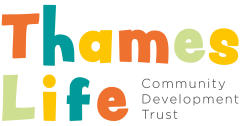An old Cherokee Indian was teaching her granddaughter about life.
She said, “A fight is going on inside me,” she told the young one, “a fight between two wolves.
The Dark one is evil – it is anger, envy, sorrow, regret, greed, arrogance, self-pity, guilt, resentment, inferiority, lies, false pride, superiority, and ego.” She continued, “The Light Wolf is good – it is joy, peace, love, hope, serenity, humility, kindness, benevolence, empathy, generosity, truth, compassion, and faith. The same fight is going on inside you granddaughter…and inside of every other person on the face of this earth.”
The granddaughter ponders this for a moment and then asked, “Grandmother, which wolf will win?“
The old Cherokee smiled and simply said, “The one you feed“.
You may have come across this story before. I like it because it always jolts me into the present and the importance of choices and perception, how we choose to see things and what we choose to do. It feels very human and also gives a sense of destiny.
However, it is also a bit simplistic. Our lives and their interactions are messy. It is not always good wolf, bad wolf. Then I found out it doesn’t end there; that there’s another version of the story, where the old Cherokee replies:
“If you feed them right, they both win.”
If you focus on one but neglect the other, you get pushback. You get polarisation, not resolution.
Plato – the guy who gave us Socrates and Socratic wisdom, had an analogy about the human soul as a mixture of three things: a charioteer and two horses: one white, one black. In the busyness of our lives, we are the charioteer getting pulled in different directions and the horses are the engine room, making things happen, representing the purity of reason (white horse) and the drives of instinct and desire (black horse), which are often in conflict. Key point: the charioteer is not in control.
Simply stigmatising the black horse as bad won’t help the chariot ride, which is bumpy enough as it is. Bringing it back a bit, simply telling ourselves who is right (good wolf / white horse) and who is wrong (bad wolf / black horse) and regimenting rigid boundaries in our lives, might make superficial sense but doesn’t transform the situation.
This idea comes up a lot. The snooker player Ronnie O’Sullivan has extended his career by being a lot more chilled. He attributes this to Steve Peters who wrote a book called The Chimp Paradox. The book is simple evolutionary biology. Metaphorically we have three ‘operating systems’ inside of us, parts of the brain and nervous system. We all start from the same place, as a chimp which is the uncontrolled, emotional child within us. Secondly, we grow up and become rational adults, and from time to time, revert to being chimps, when stressed or under pressure, get triggered, so adults become infantile, angered, out of control. Thirdly behind all of this is an unconscious part that runs most of our activities. To live happier and more successful lives, we need to better manage our Chimp.
According to Peters, the chimp is five times stronger than the rational adult. Once the chimp has control, you can’t fight it so you need a different strategy. Basically, the only thing that works is to enable your chimp to chill. It is not a rational thing, it is more elemental. Being kind to oneself and others turns out to be a really good strategy on all levels.
Socrates said he knew that he knew nothing. I’ve always found that reassuring. When I look closely at things around me they don’t make immediate sense. I’ve never trusted formal explanations of anything. It has to be about lived experience.
For me, residents have lived experience in abundance and much of the decision-making and services are the wrong way round and back to front. They don’t work very well. They get snarled up. There is always a rational explanation for this – a white horse, a sensible adult – trying to manage things, drive the chariot etc. So much for the rational explanation from our would-be decision-makers, community workers and service providers. When I look at strategic plans, systems theory, new public management etc. I invariably feel it is nonsense. I bounce off them. I don’t relate.
What makes sense to me and what I do get – is people living their lives, creating their own meaning outside of the plans and structures others have for them. Our Thames Life vision is for residents to drive change. Drive change on their own terms. That is a big vision. Maybe it is also a simple thing because it is happening all around us all the time and we don’t even notice.
As a community development trust and as a community worker it is easy to get sucked up into thinking one is fighting the good fight. Maybe that is delusional, just feeding a different wolf. Sometimes I throw shade and it comes right back at me. Life is lived forwards and understood backwards. In fact, we don’t understand anything, what we get is experience and an overview – an overstanding.
One of the many things I love about community work is the focus on reflective learning. Reflecting on what is going on allows the opportunity to do differently and get different outcomes. There is a lot of value in that.
Peace.
Matt Scott
CEO

